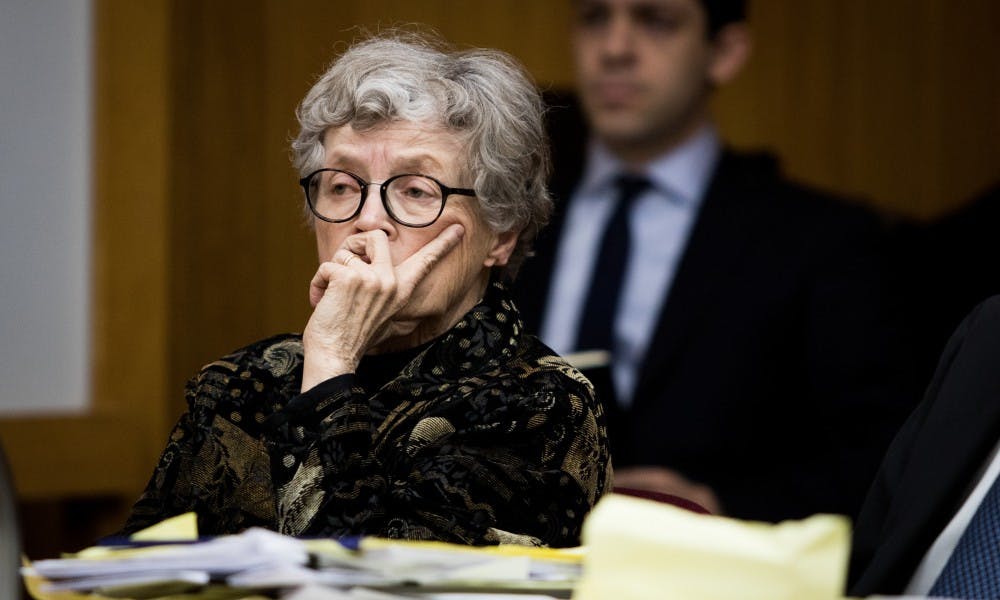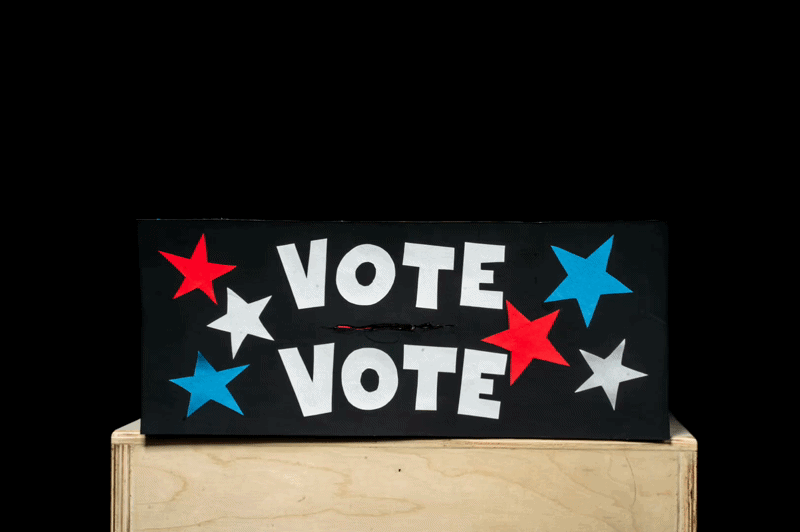Simon asked for notes on a draft. It said, "I would like to personally say I am sorry for what happened to you and I truly appreciate the courage you have shown in stepping forward."
It was the sort of apology critics had been demanding from the increasingly-embattled president — the kind of apology she didn’t actually make until almost a year later, to mixed reviews, just before she resigned.
It took so long, the emails suggest, because MSU’s lawyers were staunchly against any sort of apology.
They saw it as an admission of guilt, which could result in costly consequences in civil litigation brought by survivors. More broadly, they said an apology would be "thrown back at us" as "evidence of a pro-complainant bias" in any future sexual violence issues, Nassar-related or not.
The appetite for an apology — revealed by emails among thousands of long-secret MSU documents released by Michigan’s Attorney General last week — is one brushstroke in an increasingly nuanced portrait of Simon that has emerged in the years since the height of the Nassar crisis.
Her legacy is dominated by some of her most notorious moments, such as her absence from victim impact statements at Nassar’s trial or the continued intrigue about what she was told about him in an infamous 2014 meeting. The newly-public documents do, in some ways, cement that perception.
But they also reveal a president beset by the constraints of her office. She was largely defensive about Nassar, but also had an intermittent appetite for accountability. And, in moments like the apologies, she sometimes seemed open to survivors’ demands, but deferred to lawyers who told her to put safety from future litigation first.
"She may have actually had the right instincts a lot of the time, but she was hampered by her general counsel, who she listened to when she shouldn’t have," said Rachael Denhollander, the first woman to publicly accuse Nassar of sexual assault, and the intended recipient of one of Simon’s draft apologies.
Deletion and defensiveness
As Attorney General Dana Nessel pointed out in her announcement that the documents would be released, they do include one truly unflattering revelation against Simon: that she deleted key records relating to her handling of Nassar.
MSU general counsel sent a memo to remind university personnel of their "document preservation obligations" in light of an information request from former Attorney General Bill Schuette in January 2018. In response, Simon admitted she had been in the habit of deleting her text messages.
"As you are aware I have always treated text messages as the equivalent of oral communication and deleted," she wrote. "However, I did this with the understanding that all were available through a request that I could make or through legal avenues."
Later that month, Simon admitted in an email to then-Assistant General Counsel Brian Quinn that her husband, Roy Simon, who worked at the time in MSU’s Infrastructure, Planning and Facilities department, had also been regularly deleting text messages.
"... I do not recall using any of Roy’s devices for communication regarding Nassar or other matters related to sexual assault. Yesterday, in phone call to check on me, I told Roy that we needed to be more careful moving forward. Not to hide but to retain…"
Her husband is "a compulsive," she said, adding that "he has answered all email he receives as soon as possible, often the same day, and then deletes."
The documents also reveal that while she did want to generally apologize to survivors, Simon was sometimes adamant about including defensive language in MSU’s communications on Nassar-related issues.
In one case, Simon suggested that a statement defending MSU say it is "impossible to stop a pedophile" like Nassar. When lawyers and PR advisors objected to that framing, she doubled down.
Simon suggested that another statement should say Nassar’s abuse was more difficult to discover because it was conducted under the guise of medical treatment. The PR and legal teams had concerns about that framing, too.
Support student media!
Please consider donating to The State News and help fund the future of journalism.
"... I do not think it is helpful on the PR front. Sounds more like an excuse or defensiveness …" communications director Heather Swain said.
Simon also railed against critical media coverage by imploring staff to prevent negative stories.
In one case, she asked MSU’s general counsel if the university could sue The Washington Post over an editorial that criticized her administration’s "willful blindness" to Nassar.
After a series of unfavorable stories about sexual misconduct unrelated to Nassar, spokesperson Jason Cody texted a colleague, "It’s been a crazy few days, more football rapes and getting yelled at by (Simon)."
"Typical MSU!" he added.
A hands-on role
The documents also shed new light on Simon’s level of day-to-day involvement in the Nassar fallout.
Some emails show sudden bursts of interest from Simon, with intense demands about compliance with various investigations.
Documents show that in January 2017, administrators circulated a media report that detailed a court filing alleging that an MSU representative told a woman’s sports team months earlier not to talk to police about Nassar.
Simon was taken aback in her reaction, saying “contrary to all expectations,” the university had been encouraging all staff "to go to police and be forthcoming."
"Need to get to the bottom of this quickly and take appropriate disciplinary action if our review indicates that staff are impeding efforts to investigate," she wrote.
Aside from her expressed desire to hold accountable anyone at MSU impeding investigations, one document suggests Simon was in favor of MSU directly contacting former athletes and patients with potential knowledge of Nassar’s abuse.
It’s unclear if the proposed letters were intended to encourage recipients to report abuse from Nassar.
"(Simon’s) primary question is what the scope and purpose of our communication will be,” wrote then-General Counsel Kristine Zayko. “... Is it tied to our review of athletics? Is it tied to a specific purpose with HealthTeam? Or is it simply, Nassar was a bad guy and if you want contact information, here it is? (Simon) wants some options to react to."
Simon even appeared to have assisted MSU’s internal investigation into who may have had knowledge of Nassar’s abuse. She compiled several lists of employees whose emails she wanted to be searched, according to emails between university counsel and the chief information officer from January 2017.
Simon also tried to keep control over the long-term strategies of certain departments. At one point, she asked a large group of administrators to read a series of lengthy screeds written by a zealous alum who compared MSU’s Nassar issue to Pennsylvania State University’s sexual violence scandal.
"Per President Simon, please review and suggest a response, and advise if there is anything useful," wrote an assistant who shared the writings with Simon.
In fact, Simon seemed to consistently read emails sent to "presmail@pres.msu.edu" from various alumni or truly unconnected onlookers. Repeatedly, she asked administrators to consider their messages and draft responses. But, she was told the university should not respond to every message her office received.
Eventually, they settled on only responding to messages from significant university donors.
Administration Reporter Theo Scheer contributed reporting.
Discussion
Share and discuss “New documents reveal fuller picture of MSU’s President Simon” on social media.







